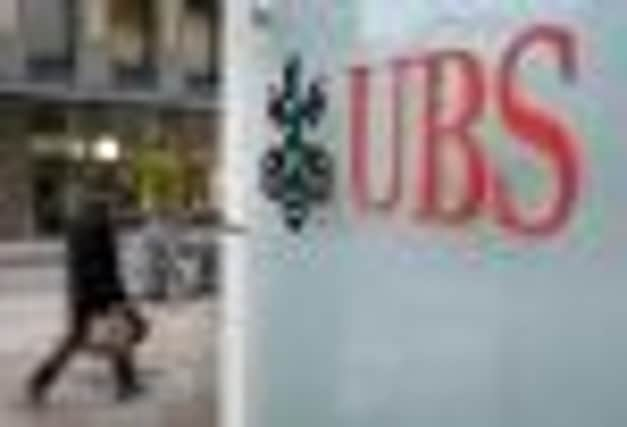Tavish Scott: Break up our banks to help small businesses


Swiss bank UBS has been fined £160 million by a UK financial regulator for rigging the interest rate that a dozen major banks use to lend money to each other. The motive appears to have been greed. Barclays was fined $450m by US and UK regulators in the summer.
It is thought that more banks were involved in the scandal. Customers could take legal action and the potential exposure is huge. So should any of us feel sorry for them? No. And, even worse, the fines levied are tax-deductible. So you and I, the taxpayers, will pay a proportion of the fine. That is a scandal too, and the Treasury should change the rules immediately and backdate the change. If any ordinary taxpayer is a day late paying income tax, penalties immediately kick in. My accountant has yet to tell me such sums are tax-deductible.
Advertisement
Hide AdAdvertisement
Hide AdThis outrage follows hard on the heels of the worldwide banking crisis and the excesses of senior figures such as Fred Goodwin. It will reinforce the distrust many now have towards the industry. After all, City traders were gambling illegally with your money. No-one in the banks stopped it. The UBS internal audit failed five times to spot what was happening.
Meanwhile, despite all the glossy advertisements from the banks, business organisations repeatedly express concern over the lack of credit. Obtaining money is still very difficult. Banks have almost stopped lending for personal mortgages for people who want to build their own house. That particularly matters in rural areas where land to build on is available.
The UK government has announced the creation of a bank to help small firms. It is easy to see why. Small firms cannot get money to expand, develop and employ new staff. I know an oil industry support business turning over £3m which cannot get an overdraft, despite being profitable. Businesses are being offered something called invoice factoring, which duly arrives with arrangement and other fees.
So Business Secretary Vince Cable is to invest £1 billion in such a new bank. It is aimed at manufacturers, exporters and high-growth companies. But why is the government having to set up a bank? We, the taxpayers, own RBS and Lloyds already. Should not the UK government break up the two banks it owns and create badly needed competition for business custom?
Lord Myners, a former City minister, this week argued for this. He is right. The banks are too big, and too big to fail. Casino gambling, or investment banking as the industry calls it, should not have the backstop of the taxpayer. Smaller banks that concentrate on the needs of the economy in lending for mortgages and businesses would stimulate economic growth. It works politically too, because the Tory side of the UK coalition is desperate to privatise RBS and Lloyds. It is time for real action.
• Tavish Scott is Liberal Democrat MSP for Shetland